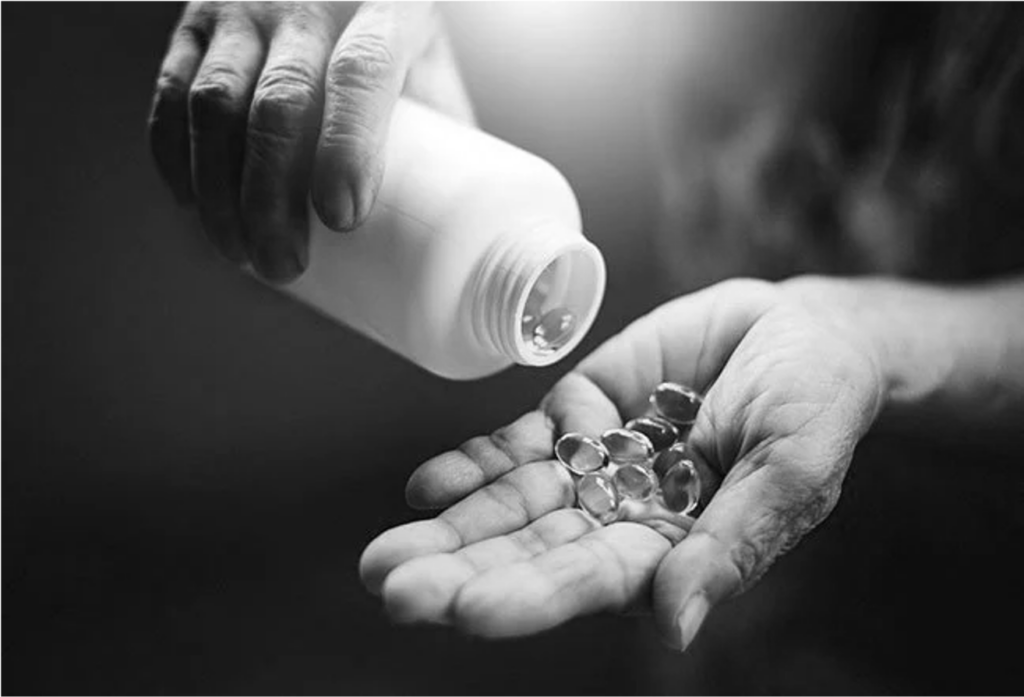By Caitlin Rothermel
If you live in the Pacific Northwest, or any climate that goes relatively sunless over winter, it’s important to think about vitamin D. For half the year, your body synthesizes vitamin D, thanks to the sun. But that changes in the winter, thanks to gray skies and less daylight.
This winter gap is a problem, because having enough vitamin D is essential for your bones, immune system, and the bacteria in your gut. Vitamin D also helps to combat viruses, and solid evidence now shows that supplementing with vitamin D protects against COVID-19 infections, hospitalizations, and death.
A bit of background. In 2020, scientists were quick to notice a link between COVID-19 and vitamin D levels. Patients with lower vitamin D blood levels (less than 20 ng/mL) became sick more often, had more hospital admissions, and were less likely to survive.
But there were important questions. Were people’s low vitamin D levels causing poor outcomes? Or was the SARS-CoV-2 infection itself somehow draining vitamin D from the body, causing poor outcomes? Vitamin D clearly played a role, but there was a “What came first, the chicken or the egg?” conundrum.
Also unclear was whether only Vitamin D taken prophylactically (regularly and preventatively, before any infection) was protective, or if there was benefit to Vitamin D administered after the infection began.
These early vitamin D COVID-19 studies were mostly small, conducted by independent medical groups and universities. Many studies were underpowered – that is, they did not include enough people for their results to be conclusive from a probability standpoint. This doesn’t mean the work was faulty, but reflects the gradual pace that medical research takes when it’s not funded by the pharmaceutical industry or large government grants. Typically, this is the actual speed of science.
Recent, definitive evidence for the protective benefits of vitamin D has come from a meta-analysis. According to Dictionary.com, “A meta-analysis is a statistical process that combines data from multiple studies to find common results and identify overall trends.” When conducted properly, a meta-analysis is considered one of the strongest forms of medical evidence.
The study, “Protective Effect of Vitamin D Supplementation on COVID-19-Related Intensive Care Hospitalization and Mortality: Definitive Evidence from Meta-Analysis and Trial Sequential Analysis,” was conducted by Italian researchers, evaluated patients hospitalized for COVID-19, and was published in January 2023. It used “trial sequential analysis” to combine patients from 5 carefully selected randomized controlled trials into a single, pooled population with enough power to draw conclusions.
What did the study find? Vitamin D supplementation during hospitalization significantly reduced the risk of death by 51% and intensive care admissions by 72%.
For a United States perspective, and to understand the role of preventive vitamin D, it’s good to know about a 2022 US Department of Veterans Administration study. It examined whether approximately 230,000 patients with a history of taking vitamin D2 or D3 were less likely to become infected with COVID-19 or die from the disease – compared to about 230,000 patients not taking vitamin D. The study also looked at patients’ vitamin D blood levels both before and after COVID-19 infection.
The results? Patients taking prophylactic vitamin D3 had 20% fewer COVID-19 infections and were 33% less likely to die; patients taking vitamin D2 had similar results. Those who took a higher dosage of vitamin D had greater benefit. All of these results were statistically significant.
This study is unique and important because the VA has access to comprehensive patient information not available in most US healthcare settings. The VA was able to show cause and effect because they knew whether or not patients had supplemented with vitamin D, as well as their vitamin D blood levels both before and after COVID-19.
This is the first article in a series on vitamin D – there is much left to say! Next month, we’ll look at medical recommendations and research regarding vitamin D supplementation and blood plasma targets – does a disconnect exist between research and reality? Also, how does vitamin D interact with other supplements like calcium, vitamin K2, and magnesium? Last, we’ll look at some medical professionals who have unnecessarily exaggerated or vilified the benefits of vitamin D, causing unnecessary damage to its reputation.
In the Pacific Northwest, one out of two people is vitamin D-deficient. This is a problem, but may be a problem we can solve. These days, that’s uncommon.

